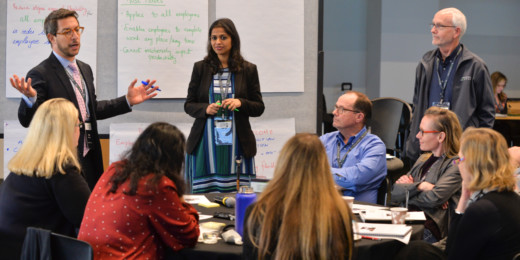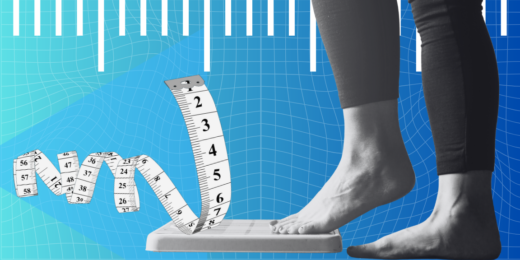When the Stanford Byers Center for Biodesign conducted a survey to learn about gender inequalities in the health technology industry, one of many eye-opening findings highlighted the power of mentorship.
"Women with mentors scored significantly higher on questions around job satisfaction and an inclusive environment than women without mentors," said Stanford Biodesign director Paul Yock, MD.
In response, the center conducted its first-ever speed-mentoring event -- via video conference -- late last month. The 75-minute event alternated short presentations about mentoring and career development with one-on-one breakout sessions, in which protégés talked individually with a mentor. The goal was to give the women -- 15 early and mid-career health professionals -- an opportunity to learn more about mentorship and how it can benefit them.
Toni-Moi Prince, PhD, said it came at the perfect time for her, as she navigates a career transition. "Since the event, I have continued the conversations with the seasoned executives that I met, and they have provided incredible career insights," she said. "I feel fortunate to have participated."
Addressing inequalities
The speed mentoring event and survey continued efforts by Stanford Biodesign, The Fogarty Institute for Innovation and medtech CEO Maria Sainz to address inequalities in health tech. The team also convened a summit on gender in health tech innovation last year, and more recently, co-founded an action-oriented initiative called Diversity by Doing (DxD Healthtech), which raises awareness of inequity and helps people take action to create a more inclusive environment. While DxD focused its initial efforts on gender, the group is currently expanding its scope to race and other dimensions of diversity.
"We recognize equal treatment of all people as a fundamental need, and are committed to using our resources, innovation process, and determination to help accelerate change," said Yock.
Understanding the gender landscape
To gauge the gender landscape in health technology, Stanford Biodesign conducted a poll of professionals working at medical device, device-based diagnostic, digital health and health information technology companies. Of about 400 respondents, 38% were male and 62% were female. The findings were published in the Annals of Biomedical Engineering.
The survey brought to light a gender gap in health tech leadership, and explored how men and women experience their workplaces differently.
It found that just one in 10 respondents work in a company where women represent half or more of the senior leadership team, and most of those companies are small, with 10 or fewer employees.
The survey also revealed that men and women largely disagree about what holds women back from those leadership roles. A majority of male respondents (62%) said the major barrier is a woman's desire to balance work and family responsibilities, while a majority of female respondents (70%) said the biggest obstacle was exclusion from networks of communication and influence. Both genders chose stereotyping and bias as the second largest barrier.
Disagreement about workplace empowerment
Men and women in the survey also had different views about whether their workplaces offered an environment conducive for women to advance.
About four in five male respondents said promotion criteria are equitable and that the workplace empowers women to reach their full potential; but just over a third of the female respondents agreed. More than half of the men surveyed -- but less than a third of the women -- said senior leaders are focused on recruiting and promoting women,
Perhaps some of those perceptions and feelings figured into another key finding: that 34% of female respondents were considering leaving their jobs, compared to 16% of the male respondents. When asked why, the top two reasons listed by women were dissatisfaction with management (45%) and a desire for greater advancement opportunities (42%).
Finally, a subset of the respondents who had been involved in fundraising reported an important area of potential bias: 47% of women respondents said that male and female members of their pitch teams were treated differently. Only 10% of men agreed.
Raising awareness and taking action
Yock said he was glad the survey's results quantify important gender inequity issues in health tech, but much work remains. He hopes training programs, initiatives like DxD, and events like speed-mentoring -- which will be offered again next quarter -- will help.
"We certainly don't have all the answers," Yock said, "but raising awareness and finding meaningful ways to take action, even if they are small, is a start."
Photo by Stacey Paris McCutcheon






